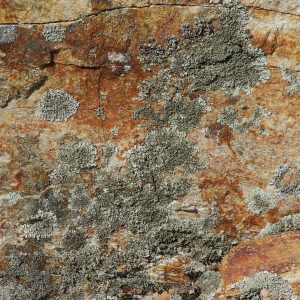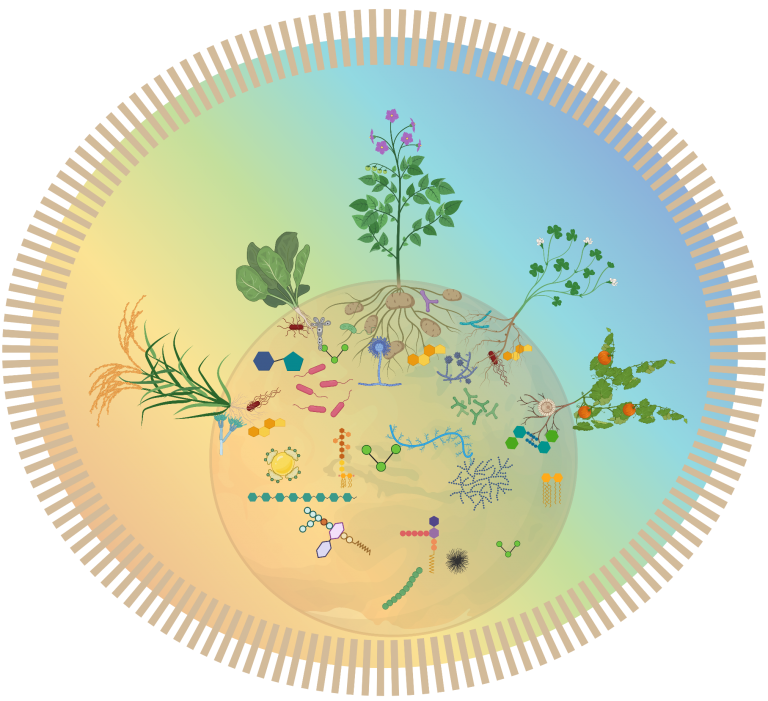
Microp: Harnessing the second genome of plants; Microbial imprinting for crop resilience.
We study the plant-microbiome interactions in order to enhance plant growth and resilience to environmental stress.
We study the structural diversity and functional plasticity of small molecules produced by plants and other belowground microscopic organisms, in the process of microevolution (domestication/genetic variation) and macroevolution (across species/families).
Using wild and domesticated cucurbits and genetic variation we look for the effect of artificial and natural selection on root microbiome recruitment under phosphate stress. In addition, we study the macroevolutionary mechanisms driving signaling molecule production and perception. Using comparative transcriptome, metabolome, metagenome and metatranscriptome and molecular biology approaches across families/species, we want to explore widely-conserved and family-specific signaling molecules/microbes in plant-microbe interactions that protect plants against harmful and attract beneficial organisms. To achieve this, I am working with PhD student Sébastien Jaupitre and bioinformatician Fred White in MiCROP to study the signaling molecule biosynthesis and perception under phosphate starvation across 5 plant families.


We study the plant-microbiome interactions in order to enhance plant growth and resilience to environmental stress.
Research Themes
Contact
Metabolism Lab
University of Amsterdam
P.O. Box 1210
1000 BE Amsterdam
The Netherlands
© Metabolism Lab 2020-2021 • privacy • disclaimer • terms